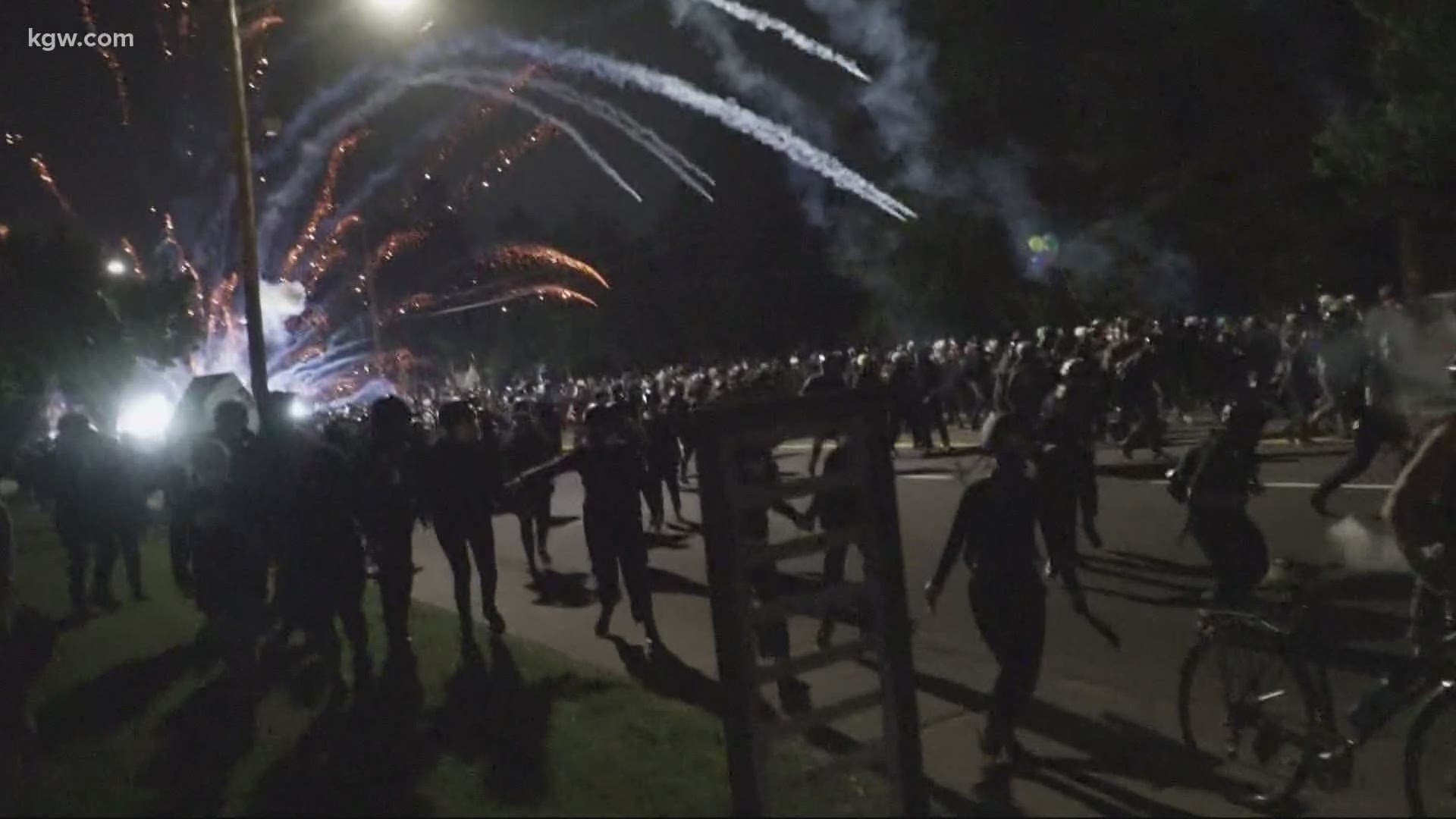PORTLAND, Ore. — The U.S. Department of Justice (DOJ) identified Portland, Seattle and New York City as three jurisdictions that have "permitted violence and destruction of property" in a press release Monday morning.
According to the DOJ, the cities have "refused to undertake reasonable measures to counteract criminal activities."
The announcement was made in response to President Donald Trump's memorandum titled "Memorandum on Reviewing Funding to State and Local Government Recipients That Are Permitting Anarchy, Violence, and Destruction in American Cities."
The mayors of the three cities targeted by the DOJ — Portland Mayor Ted Wheeler, Seattle Mayor Jenny Durkan and New York City Mayor Bill DeBlasio — responded to what they called a political attack, criticizing Trump's threat to revoke federal funding for the three cities.
"This is thoroughly political and unconstitutional," the statement read. "The President is playing cheap political games with Congressionally directed funds. Our cities are bringing communities together; our cities are pushing forward after fighting back a pandemic and facing the worst financial crisis since the Great Depression, all despite recklessness and partisanship from the White House. What the Trump Administration is engaging in now is more of what we've seen all along: shirking responsibility and placing blame elsewhere to cover its failure."
Portland, according to the DOJ, meets the criteria for the following reasons:
- This month, Portland marked 100 consecutive nights of protests marred by vandalism, chaos, and even killing.
- Those bent on violence regularly started fires, threw projectiles at law enforcement officers, and destroyed property. Numerous law enforcement officers, among others, suffered injury.
- Shootings increased by more than 140% in June and July 2020 compared to the same period last year.
- In the midst of this violence, the Portland City Council cut $15 million from the police bureau, eliminating 84 positions. Crucially, the cuts included the Gun Violence Reduction Team, which investigates shootings, and several positions from the police team that responds to emergency incidents.
- In August, Portland Mayor Wheeler sent a letter to President Trump expressly rejecting the administration’s offer of federal law enforcement to stop the violent protests.
"When state and local leaders impede their own law enforcement officers and agencies from doing their jobs, it endangers innocent citizens who deserve to be protected, including those who are trying to peacefully assemble and protest," said Attorney General William P. Barr. "We cannot allow federal tax dollars to be wasted when the safety of the citizenry hangs in the balance. It is my hope that the cities identified by the Department of Justice today will reverse course and become serious about performing the basic function of government and start protecting their own citizens."
Paul Diller, a law professor at Willamette University, said Monday the first thing that struck him is what’s not included in the DOJ’s release.
“The list of cities came before detailing what the tangible repercussions might be,” Diller said. “We still don't know what kind of grant programs the Trump administration is thinking about targeting.”
In his memorandum earlier this month, the president kept his threat vague, writing the feds fund "…a wide array of programs, such as housing, public transportation, job training, and social services."
Diller pointed out withholding funds is a constitutional power of Congress, not the president, meaning it'll be tough for President Trump to argue he has this power.
“There is a line of Supreme Court jurisprudence that says that the federal government can only influence so much state policy or local policy,” Diller explained. “The big example of that would be when Congress tried to expand Medicaid for all 50 states as part of the Affordable Care Act, or Obamacare as it's often called, and the Supreme Court struck that down by saying that ‘Well, Congress can't make states expand Medicaid.’”
Other experts cited the president's 2017 attempt to cut federal funds to sanctuary cities and states, demanding they enforce federal immigration policies.
That attempt has been tied up in the courts since.
Lewis & Clark law professor Tung Yin said that could happen again.
In that case, he said, “I would rather have the side of Portland in that litigation to argue that any cuts in funding like that would be unconstitutional, but litigation can take a long time to work through. And so for nonprofit groups and the people who benefit from those who are relying on that funding to tell them, you know, in three or four years, you'll probably win the case. I'm sure it's not going to be a great comfort at all.”
MORE COVERAGE: Protests in Portland (YouTube playlist)

